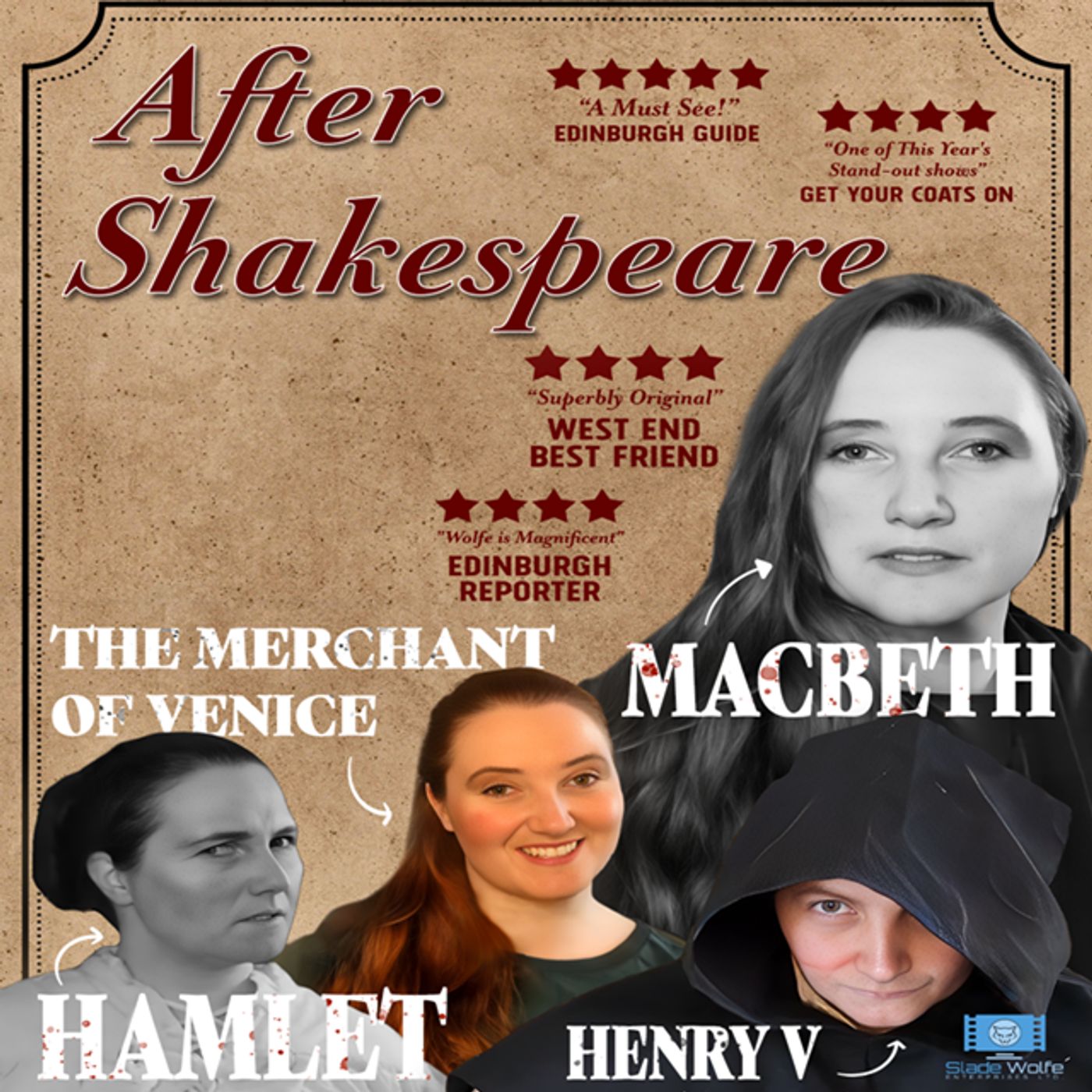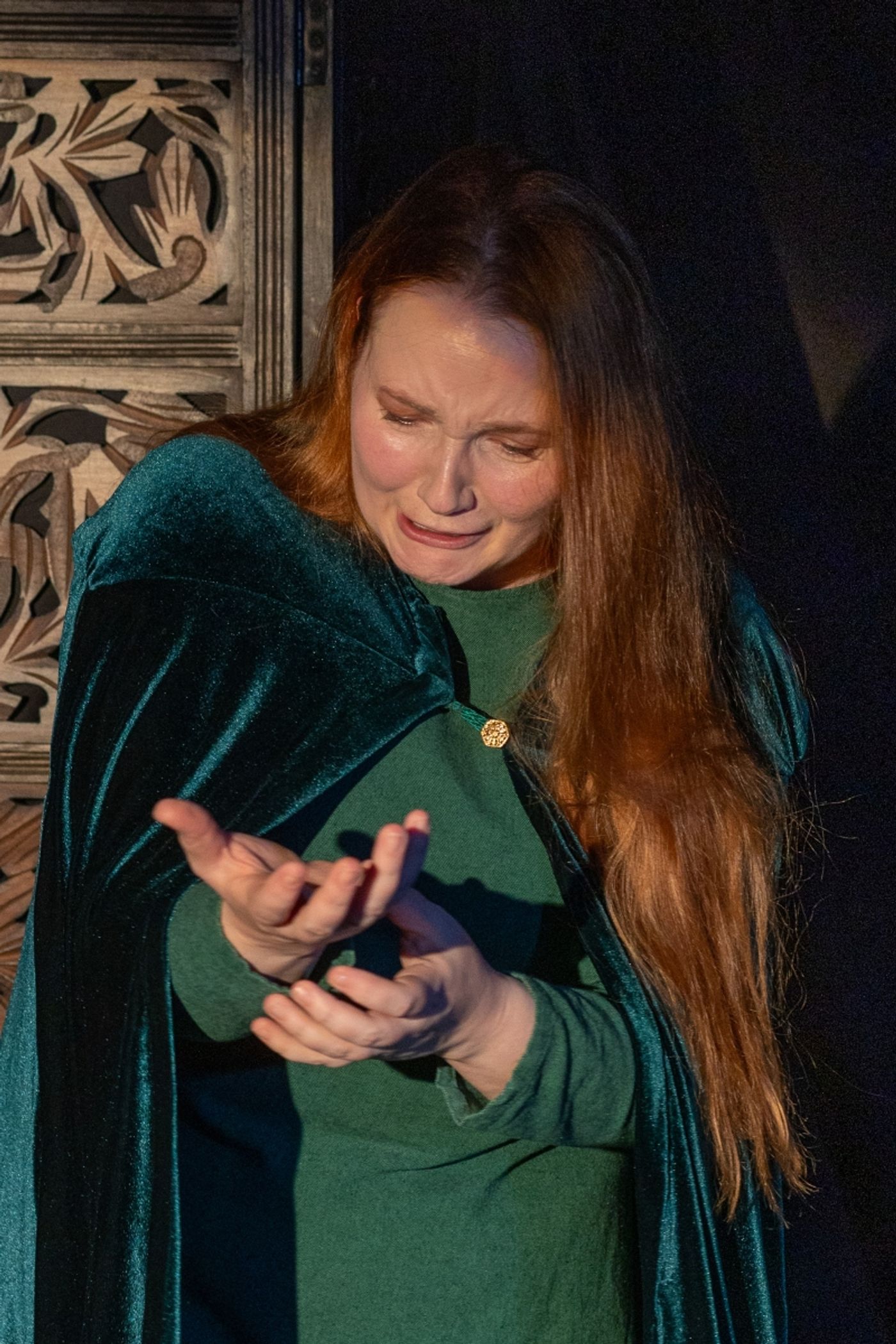Interview: Lexi Wolfe and Andrew Slade of AFTER SHAKESPEARE at Odd Box during Ottawa Fringe
Lexi and Andrew shared their thoughts on the show, including the surprising relevance of Shakespeare 400 years later, and why you should see the show.
 Ahead of this year’s Fringe Festival, I met with Lexi Wolfe and Andrew Slade, the duo behind Slade Wolfe Enterprises. Lexi and Andrew are bringing the Edinburgh Fringe fan-favourite, After Shakespeare, to Ottawa from across the pond and they gave me their thoughts on the show, including how surprisingly relevant Shakespeare still is 400 years later, and why you should see the show.
Ahead of this year’s Fringe Festival, I met with Lexi Wolfe and Andrew Slade, the duo behind Slade Wolfe Enterprises. Lexi and Andrew are bringing the Edinburgh Fringe fan-favourite, After Shakespeare, to Ottawa from across the pond and they gave me their thoughts on the show, including how surprisingly relevant Shakespeare still is 400 years later, and why you should see the show.
Can you explain what After Shakespeare is about?
Andrew: By wanting to know what happened after the events of the various plays, Lexi took four of her favourite Shakespeare characters: title characters Henry V and Hamlet, Lady Macbeth from Macbeth, and Portia from The Merchant of Venice. Then, Lexi pretends to be the four characters and presents to the audience what might have happened after their shows had ended.
What made you come up with the idea?
Lexi: I have always been into Shakespeare and enjoyed playing male roles. It also allows me to do weird stuff! And so far, no one has picketed the show!
Andrew: Lexi did a Masters in acting and her thesis was women playing men's roles in Shakespeare.
Lexi: I really enjoy playing male roles. I had the most fun playing The Artful Dodger in school. The reaction to After Shakespeare so far has been quite positive. People seem to get what I’m doing. We performed After Shakespeare at the Edinburgh Fringe in 2023 and we were asked to bring the show back again this year due to overwhelming requests from the audience, so we will be going back to do it again this year.
I understand that you embody different Shakespeare characters in the show. Do you alternate between each character, or do they converse with one another?
Lexi: The stories are self contained. It is essentially four monologues so, in a way, it is like four tiny plays alongside each other. For example, we find Henry V in a pub talking about what he’s done and the places he’s been and then a half minute later, I emerge as Hamlet and, since Hamlet died in the play, he is looking back on his life.
Is the show written in iambic pentameter?
Lexi: No, but there are little nods to Shakespeare throughout the show, particularly by making references to popular lines from the various plays. By not having everything in verse, the play is more digestible to audience members who may have less of a background in Shakespeare. We designed it to act as a stream of consciousness for the characters.
Does the audience need to be familiar with the associated Shakespeare works in order to understand After Shakespeare and where the characters are coming from?
Andrew: No. I think that Shakespeare forms such a large part of English speaking culture that it isn’t necessary, and Lexi also goes over some of the plays’ major plot points in the show. It may rely on some vague cultural knowledge, but you don’t need to have read the plays to be able to appreciate the show. Much of the show has to do with history. Lexi is a history buff, so a lot of the specific themes have links to the play but are also mirrored in society today. Portia is a cross dresser, and the overarching theme about the inequality of the sexes and how Portia is not taken seriously until she dresses like a man, is more important than having any prior knowledge of The Merchant of Venice.
After Shakespeare was a hit at the Edinburgh Fringe Festival in 2023 – why do you think the show resonates with people?
Lexi: People seem to have an inherent love of Shakespeare, as it is part of the cultural identity that English speakers have. But there are only so many times that one can take a Shakespeare play at reset it with a World War II theme or a disco theme. So, After Shakespeare is the kind of same Shakespeare you know, but still different.
Andrew: There are over 3,600 shows at the Edinburgh Fringe to choose from. Some people will gravitate towards the shows that are totally wild and out there because they want to be entertained. But you have some people that have want something more familiar, so seeing the word Shakespeare has a level of comfort that comes with it. With Edinburgh Fringe, people can leave reviews right on the ticketing site so, as potential audience members navigate the site, they can make decisions on which show to see based on other people's reviews. We are fortunate to have benefitted from word-of-mouth through those audience reviews.

Photo courtesy of the Ottawa Fringe Festival.
With so many shows to choose from, why should our readers pick After Shakespeare? What sets it apart from the other shows at the Ottawa Fringe Festival?
Lexi: If I’m allowed to blow some good smoke in my direction, I have tried to make it as balanced as possible. When watching Hamlet, hopefully the audience is laughing at him, as he has some very good observations as to what happened. If people come out hating Henry V, I have done my job! But also, because I am so into history, hopefully it will spark a desire to learn a bit more about the history behind these plays.
Andrew: What is interesting is that it is a show about the past with topics that resonate in the present. In Henry V, Lexi tackles war and the horrifying effects of war, Hamlet looks at loss and the effects of loss (albeit in a funny way), Portia looks at LGBTQ+ and gender roles, and Lady MacBeth is all about love, loss, vengeance, and revenge. Especially now, looking at what is happening with Canada’s neighbours to the south, where LGBTQ+ rights and all kinds of other rights are being decimated, the show’s themes take on greater relevance, even though it was written two years ago. So, After Shakespeare has all the elements of a classic modern thriller, wrapped up in the contents of Shakespeare, while reflecting modern times, as frightening as that may be.
After Shakespeare is at Ottawa’s 2025 Fringe Festival from June 13 through June 21. For show times, click the link below. To learn about other Fringe offerings, click here.
Note: This interview has been adapted for length and clarity.

Videos

